By Pearlynn Sim
When I found out that my family and I were going to visit a coffee plantation in Bali, Indonesia, my first thought was that it was a ripe opportunity for some detective work. Bali, like Vietnam and elsewhere in Southeast Asia, is well known for kopi luwak. I was curious to see what the tour would be like.
On the day of the tour, when we expressed interest in visiting a coffee plantation, our driver began telling us about kopi luwak excitedly – how exquisite it tastes, how unique it is and all. One of the staff at the coffee plantation then brought us around and explained the origins of kopi luwak. We were also shown civet poop with coffee beans, and how the coffee beans are processed.
Following that, it was a tour of the coffee plantation. Coffee plants among other crops were pointed out and finally I saw what caused my heart to drop despite all the mental preparation.
Oblivious to my look of shock, we were enthusiastically introduced to the civet (or luwak) in the cage in front of us. The cage was about 6 by 8 feet. Aside from a metal bowl with water in the corner, there was nothing else. Civets are solitary and territorial animals, normally found on trees, so being in close proximity to other individuals – such as in farms – would be stressful.
In total I saw some six caged civets on the premises that visitors had access to. Two were kept separately but within sight of each other (the cages above). The other four were kept together – two in a fairly large cage and two in poor conditions (rusty and small cage). It was a cage of about 2 feet by 1.5 feet, even more cramped than what I had seen initially.
To find out more, I asked if the caged civets were farmed for kopi luwak. She insisted that the kopi luwak they sell are all wild-sourced. Upon asking what the civets were fed, she replied, “Fruits such as bananas and apples”.
We were then herded to a pavilion where we were allowed to taste the various coffees before purchasing the ones we liked. This excluded kopi luwak which was ‘pay-before-you-try’. We gave that a miss.
At the gift shop, a wide array of coffees were for sale, including kopi luwak. The sales representative was visibly disappointed at our lack of enthusiasm but tried to promote the boxes of kopi luwak which she said make good gifts.
While my experience suggests that this coffee plantation may be farming civets for kopi luwak, I must emphasize that I do not have any concrete evidence (and am thus not pointing fingers). This write-up was purely intended to share my experience in Bali, highlight how rampant kopi luwak is over there, and hopefully give readers some food for thought.
Wild-sourced kopi luwak is roasted from the coffee beans pooped out by wild civets which pick only the best coffee beans to supplement their diet. Farmed civets are fed a diet of only coffee beans, so without any choice in the coffee beans, would the quality not drop? Many buy this coffee on the assumption that it tastes better, but with farmed kopi luwak these days, how true is that?
Animal welfare aside, perhaps think about that if the thought of purchasing that very expensive cup of kopi luwak ever crossed your mind.
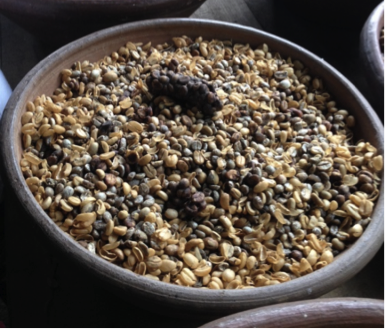
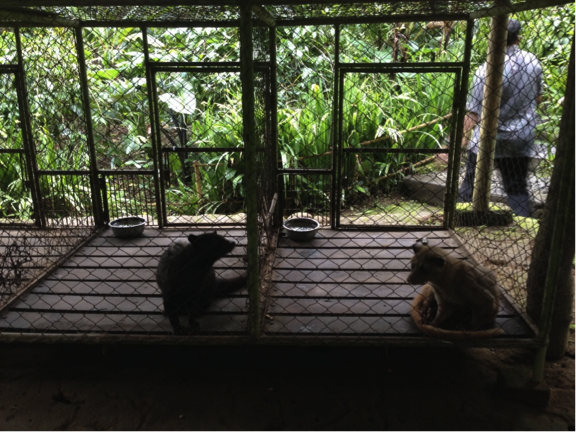
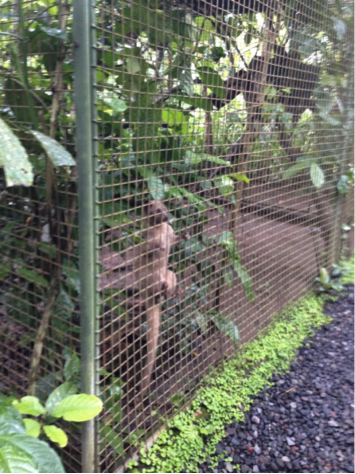
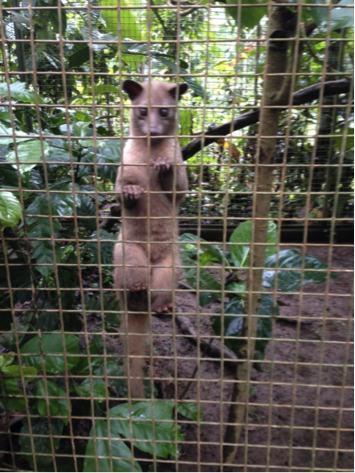
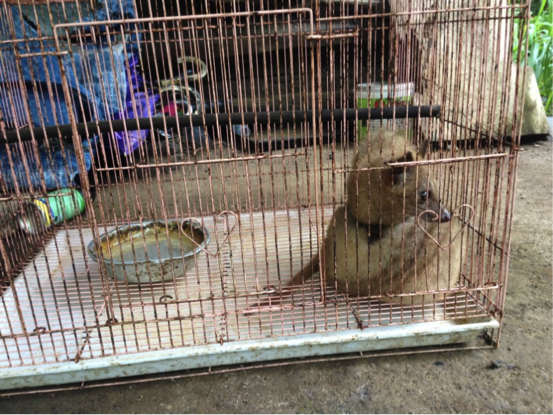
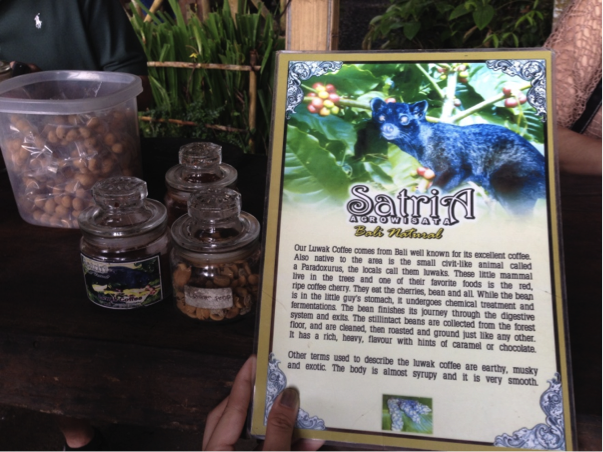
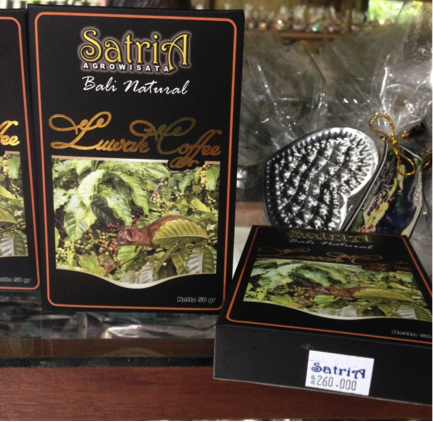
aw… that is so sad! eurg…!!
I am very distressed to see Luwaks in cages in Bali. The one we saw had been in a tiny cage for 2 years and had never been let out. It was visibly traumatised. I cannot STAND animals in cages! That little leak has a jail sentence for human pleasures. It’s disgusting.
Please think twice about supporting this industry.
Pingback: Sale of kopi luwak in Indonesia | Project LUWAK Singapore
I too have seen this coffee plantation and it is indeed VERY sad to see the animals caged in that way. I wanted to sneak back and release them.
Are there any ‘ethical’ coffee plantations in Bali that one could visit instead?
Currently, there are no UTZ certified coffee plantations in Bali. There are, however, a handful of certified plantations in Indonesia. You may view the list of certified producers here – https://utzcertified.org/products
It is not certain if these plantations produce kopi luwak. UTZ is an international certification body for sustainable farming; only cage-free kopi luwak producers are certified.